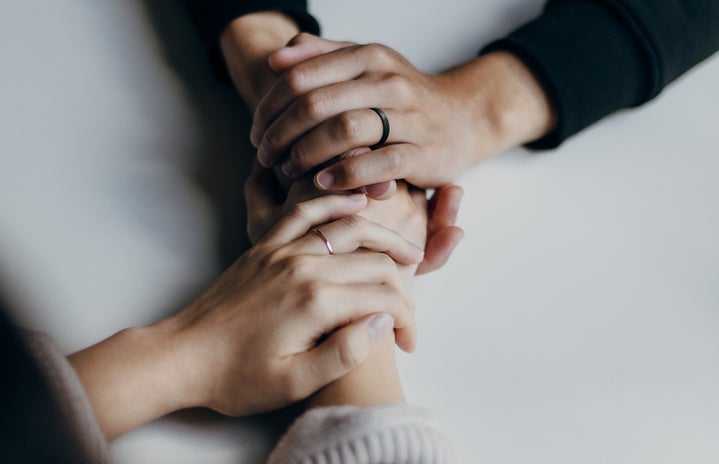Content warning: This article mentions sexual assault and domestic violence
October is domestic violence awareness month. With this, it is important for us to recognize what victim blaming is and how to avoid doing it. According to the Sexual Assault Center of Edmonton, victim blaming is when people are questioned who experience violence, especially sexual violence, “about their actions, and what they could have done to prevent it, or worse, invite it.” It is important to understand that no victim is to blame: a crime was committed and it wasn’t the victim’s fault.
When victim blaming, you may say something to the victim of sexual violence that can be very triggering. Some things that someone who is victim blaming may say include, “Boys will be boys,” “You dressed that way, what did you expect,” “Why’d you drink that much,” and “You should have known what you were getting into being there.” There is no reason why victims should be questioned in the sense if they are actually victims or not. They did not commit the crime, therefore, they are not to blame. No matter what they were wearing, if they were under the influence of alcohol or drugs, where they were, or what they were doing, is a sign of consent if a “yes” wasn’t stated.
People blame victims for a few different reasons. According to GoodRX Health, there are six different reasons why someone may blame a victim. One reason is attribution theory, which means that if the victim is blamed, then they may feel better and that the same situation won’t happen to them. Another reason is the just-world phenomenon, where people want to believe that the world is fair and what happened to the victim is just karma. Some people who victim blame may have hindsight bias. There are people who believe that victims should have seen the events coming and it was preventable. Perpetrators of the crime may disown accountability because they don’t want to be assimilated with the crime they committed or the harm they caused to the individual. The last reason GoodRX Health gives for why people victim blame is simply having low empathy: people may not be able to feel compassion towards victims.
Victim blaming affects victims because it discourages survivors of violent or sexual actions from speaking out. The survivor may not want to tell anyone else about what happened to them in fear of being blamed for the encounter. Victims also may not want to look for treatment and support because they are afraid. These victims may also have an increase risk of PTSD, depression and suicidal thoughts because they where shut down when they felt comfortable enough to disclose information to someone else. By victim blaming, people are supporting the abusers rather than the victims, which encourages abusers to keep doing what it is they did.
Instead of victim blaming, it is important to let the victims know that you are here for them. Let victims know that you hear them and they are not to blame. Tell the victim “I believe you” and that you are there for them. Don’t only say this just to say it, but truly mean it. Be there for someone when they reach out and express what has happened. It is important to stand with people who are being harmed and support those who need it. In the end, it will only make our community stronger. We need to stand with victims, not their abusers.


